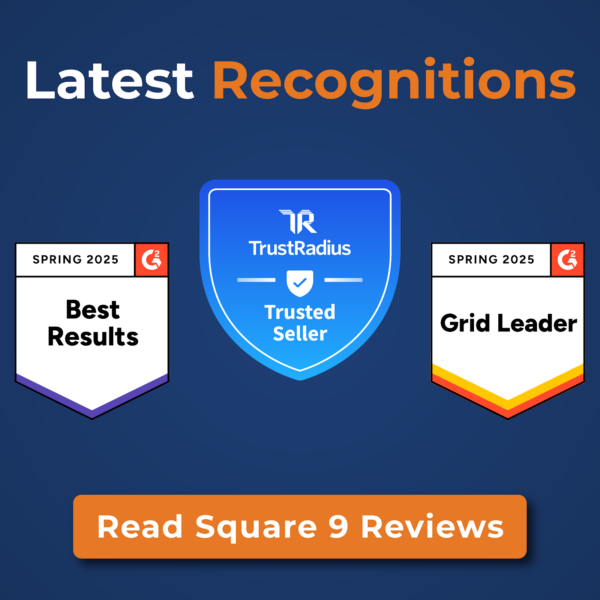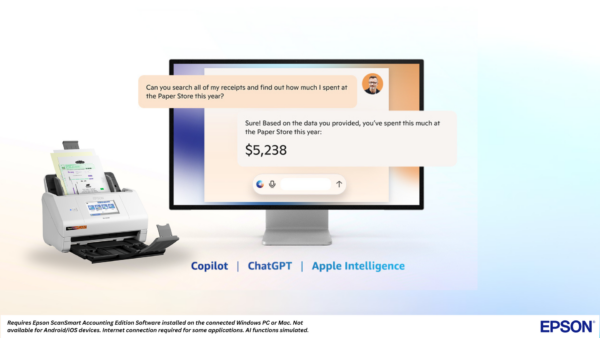Kingston Training Group is proactively enhancing its sales training using artificial intelligence.
Generative AI programs like ChatGPT and the offerings now built into enterprise software like Microsoft Office get a lot of press for their potential to make work more efficient, but what does that look like? We talked to Kate Kingston, president and founder of Kingston Training Group, about how she uses AI to help train dealer sales reps to be more productive.
“If you think about it, AI is already being used by our industry,” said Kingston. “When we help the accounts payable departments of the companies we’re going after, we can put a software workflow in place so they don’t have to personally look at every one of their invoices. They can just scan them into the computer.”
Ingesting, parsing, and analyzing text is one of the things this current generation of AI does best, and when it comes down to it, that’s a lot of any good sales consultant’s workday. Kingston started using AI-powered search to scrape the internet for the kind of lead-generating info that used to take hours or days to assemble manually. Once she got a sense of what was possible by using public tools like ChatGPT, she connected with West McDonald, an AI consultant whose company GoWest.ai, helped Kingston Training Group build a custom application.
“You can actually create a bot that will answer all the questions you would be asking,” said Kingston. “What’s their technology plan? Who’s their CFO, CIO, COO? How many locations? What’s their headquarters? What’s their corporate phone number? How many employees do they have?”
Sure, a good old-fashioned phone book can answer some of those questions, and a company website will have more of them, but many of the really useful details about a company and its staff are likely to be scattered across dozens of news sites, blogs, and social media posts accrued over the years. The AI bot can search all these things organically in a fraction of the time it would take a human.
“It’s not just scraping it from their website, but from everything that’s ever been electronically archived, and it’s amazing,” said Kingston.
Embracing AI has allowed Kingston Training Group to be more efficient in other areas as well, particularly customer service. Another tool developed for the company is an “Ask Kate” virtual chat agent accessible from their homepage, pre-loaded with a database of consulting wisdom.
“It’s going to let salespeople ask their regular questions and get answers, so they have more access to me without me being there,” Kingston said.
Being an early adopter of technology, especially something poised to spread to all corners of the business world in the coming years, can give sales reps a conversational jumping-off point when talking to clients. Many of them will by now have a vague idea that they should be exploring AI but don’t really know what they would do with it. Having some personal experience and real-world examples can open up a dialogue that, even if it doesn’t lead immediately to a sale, builds relationships and trust.
“I believe wholeheartedly that they are looking for us to be technology consultants or advisors, not just salespeople,” said Kingston. “So, when you bring new information to them that doesn’t necessarily put a dollar in your pocket. It’s bringing new ideas to the table, and I think our industry is supposed to be doing that.”
The practical applications of AI in sales go beyond just having a virtual research assistant. Dealerships spend a lot of time and money on training their sales staff, often paying for expensive conferences, or having someone come in to teach classes, but while that can deepen a sales rep’s knowledge about a product line or teach some specific strategy, there’s no match for daily practice.
AI and Sales Training
Kingston Training partnered with Sell Me This Pen, a sales recruiting company, to develop an AI-powered sales conversation simulator that allows sales executives to practice their pitches and how to “get past the receptionist” on cold calls. Rather than just following a handful of scripts like sales training of the past, the AI synthesizes a new conversation every time.
“I think there’s evolution happening in skill-based growth through AI and avatar training,” said Kingston. “That’s what AI is so great for because it can make up different scenarios. It also gives managers analytics and transcriptions of each call in real time, so it will save the sales managers practice time with their reps, but it will alert them to skill-based areas of need.”
Skill growth has to be an ongoing process, especially for those working in technical fields. Kingston sees investment in AI as part of a necessary practice of continuous education that helps sales executives maintain a competitive edge in this increasingly technical field. Staying the course can quickly turn into falling behind.
“That’s what the imaging channel has to focus on, not being behind,” said Kingston. “We used to be copier reps. That’s no longer true. It’s just the on-ramp into the digital highway now. We’re business technology consultants, and AI is part of this conversation.”
With emerging technology, especially something as fast-growing and varied as generative AI, staying up-to-date means staking out committed time to actively researching and learning. Research on new technologies should be a regular part of a sales executive’s workday, just like making calls. Sales managers should try to overcome the mental hurdle that things like watching YouTube videos or listening to podcasts—both great sources of education on AI—aren’t productive uses of the sales team’s time.
“It’s a learned skill, and we’re at work,” said Kingston. “Proactive selling and being a proactive salesperson mean that I am in control of my calendar, and I’m in control of putting learning time in so that I have something of value to talk about.”
Job Insecurity
For those who worry that AI will put them out of a job, rest easy. AI is just the latest frontier for automation, meaning it’s supposed to ease the burden of the aspects of work that are tedious, repetitive, or unnecessarily difficult. The actual work of sales, meaning developing pitches, building relationships, and having conversations, can only ever be done by humans. Anyone worried their clients would feel differently should ask themselves how they feel when they get a robocall.
“I was worried I was going to be out of a job,” Kingston laughed, “Luckily, it’s nowhere near what we would need to deliver to make an impact on a prospecting pitch. The specificity of our industry still needs human knowledge.”
Some may still have hesitations about AI, but no matter how much they decide to use it in their own workflow, it’s important to know what’s out there and where the industry is headed because clients depend on the salespeople they have relationships with to be informed. It’s long past the time when it was possible to just not to be tech savvy.
“That’s like a chef saying I’m not really good with food,” laughed Kingston. “You sell technology; you have to step up.”





